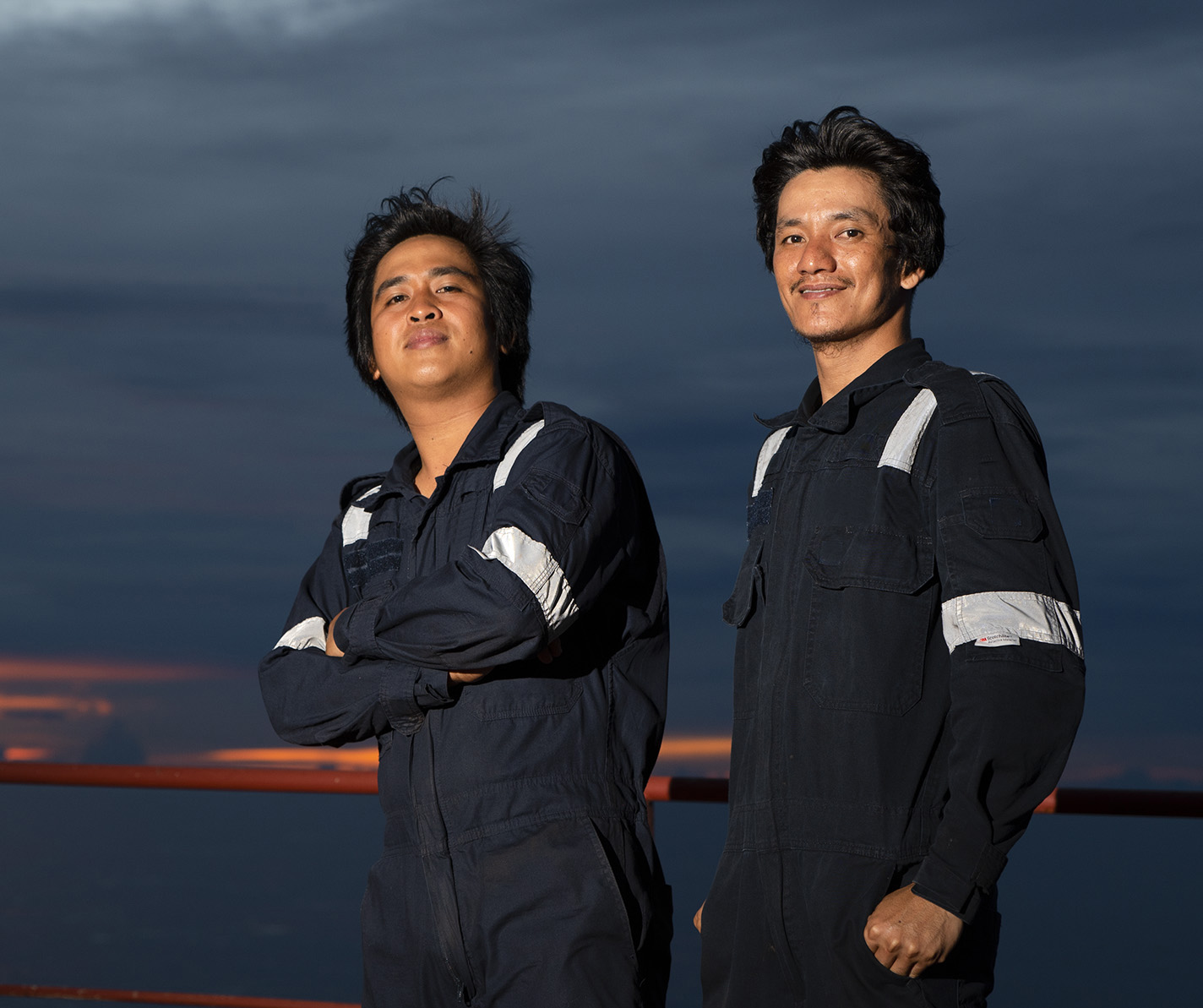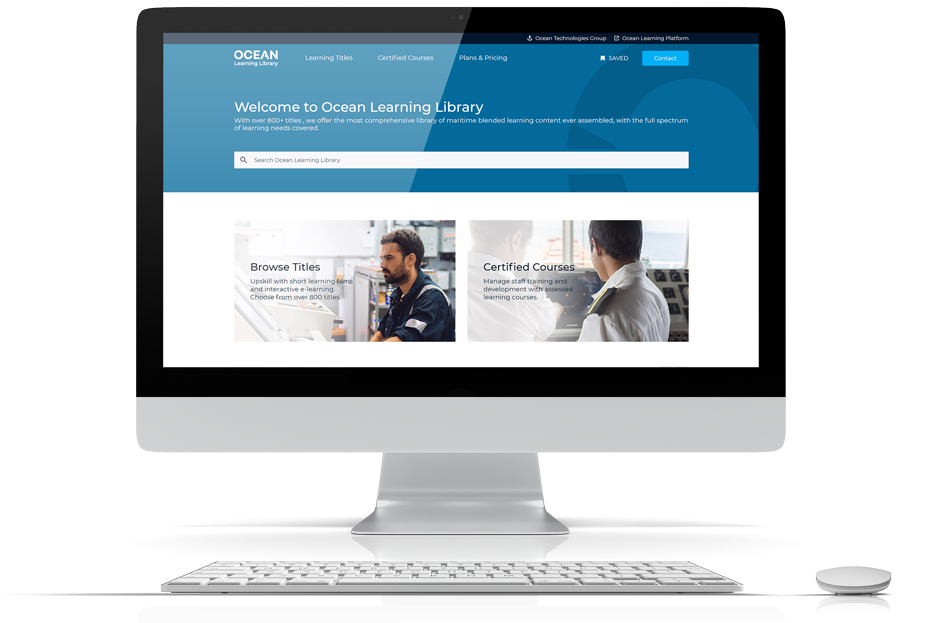The Growing Importance of Communication
Communicating onboard ships is not just about being proficient in English. With huge changes to maritime jobs on the horizon, good communication skills are more important than ever, whatever our native language.
We are at a point in the evolution of shipping where we don’t know what the jobs of tomorrow will be. As such, employers are focusing on attitude – hunting for people with transferable skills like communication and an aptitude for learning who will lead the future world of work.
There are two aspects at play in the new world of work: technological changes and human skills.
Educational tech: our way into the new world of communications
The Covid-19 pandemic propelled learning, training and assessment forward with a range of ‘ed tech tools’. Whether you are a trainee or a qualified seafarer, you’re now likely to use an online account on a learning management system for blended learning – education is no longer confined to the shore, to classrooms, books and instructors.
Technology is changing how we learn, and it is also rapidly changing the way we work both at sea and on shore. These changes are influenced and enabled by several different drivers, including automation, decarbonisation, and connectivity – but also by our modern approaches to improving mental health.


English language testing
Confidence in crew communications
Automation: why human communication skills matter
Maritime automation means that routine onboard tasks will increasingly be done by machines and robots, allowing more time for cognitive skill-based work to be completed by humans. This will require higher level skills such as critical thinking, creative problem solving, interpersonal skills and leadership qualities.
Communication skills will be especially important if crew sizes continue to shrink. In an automated workplace, every ‘human role’ will have a specific function, requiring seafarers to collaborate as very efficient teams. While seafarers will still need seamanship knowledge and skills, on top of this they will also need more IT skills – and with that, an awareness of IT terminology.
Decarbonisation: learning a new vocabulary of propulsion tech and sustainability
Ships are now being built to be powered by nuclear energy, LNG, hydrogen, ammonia, bio-fuel, fuel cells & batteries, wind power – technologies so new, we don’t yet know exactly what training will be needed, nor the required terminology. Somehow, the seafarers of today need to be trained to operate the ships of tomorrow. Manufacturers already provide training directly to seafarers on the use of their systems; this trend is increasing, so seafarers will need strong language and learning skills to absorb more new information rapidly. Autonomous learners may be higher priority than autonomous ships. As such, language and communication skills are critical to sustainable shipping.
Connectivity: linguistic fluency required for real-time communications
Work, learning and training are also affected by connectivity. The quality and availability of data connectivity aboard vessels is improving at an unprecedented pace, allowing closer monitoring and tighter communication between shore and ship operators. In this ‘always on’ environment, spoken fluency and accuracy along with strong listening skills will be essential.
Recently, ship inspectors’ checklist have included the question: ‘Can the seafarers onboard the vessel communicate effectively with each other in the working language of the vessel?’ Perhaps in future, inspectors will also ask: ‘Can seafarers onboard work effectively with shore staff using real time communication?’
The ability to learn and use new terminology quickly and accurately is a very important language skill. IT and automation will give rise to new terminology, as will the industry’s drive to decarbonise.


Mental health, bullying and harassment: ‘soft’ communication skills coming to the fore
While connectivity enables data sharing, what benefits does connectivity bring seafarers? Internet access is now a right enshrined in the Maritime Labour Convention – but connectivity does not guarantee feeling connected. Loneliness at sea remains a problem and rates of suicide are increasing. Charities such as ISWAN help seafarers via teams of counsellors who can talk to crew in their own languages. Being able to talk to someone is sometimes enough to maintain a positive sense of wellbeing.
However, developing a sense of connection onboard may be tricky in small, multi-cultural crews. The vocabulary, culture and degree of stigma around mental health varies hugely between nationalities. It can be very difficult to open up about how you are feeling in your first language, let alone talking about complex emotions in English if it is not your native language, or if your crew mate does not share your cultural background. It’s easier to cover up than open up – but as seafarers know, a cover can’t hold if too much pressure builds up. Seafarers and shore staff literally need to learn the language of mental health as a first step to feeling more comfortable talking about it.
Crews are mixed not only due to nationality but also religion, gender, sexuality, age and neuro diversity. Diversity is beneficial but also leads to points of friction at times, such as bullying, harassment and conflict onboard. Companies increasingly expect employees to comply with equal opportunities policies, in order to work effectively as teams and to develop future leaders.
If these ‘human factors’ seem far removed from seafarer training requirements, it’s worth knowing that amendments are being made to the STCW Code that will require all seafarers to know how to address and intervene appropriately in cases of sexual assault and harassment. Training will be needed in this subject so seafarers will need the appropriate language, cultural awareness and interpersonal skills to address these very sensitive issues, as well as mental health and wellbeing.
Moving ashore: how being a good communicator prepares you for your whole career
Seafarers will need to absorb a lot of new information and acquire skills that go way beyond traditional seamanship and technical terminology. Officers may work at sea for just a few years before moving into shore-based roles. Academies therefore are not only educating cadets to be future seafarers but also future superintendents, crew managers, technical directors, and other corporate leadership positions. So, on top of technical, commercial and IT skills, it is clear that communication, language, leadership and learning skills will help people cope with change and prepare for new roles.
The pace of change is rapid. As the human/digital interface expands, communication skills are a ticket to the new world of work.
If you would like to know more about how can help you, please
The maritime industry’s best e-learning content
Unparalleled breadth and quality of content. We offer the most comprehensive library of maritime blended learning content ever assembled.

